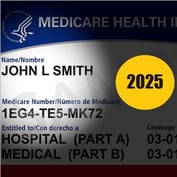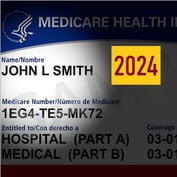(Bloomberg) — The House will vote as soon as tomorrow to avoid an estimated 24 percent cut in physician payment rates under Medicare scheduled to take effect after March 31, and to delay any future cuts to doctors for a year.
The 121-page bill was posted late yesterday — three minutes before midnight — allowing the Republican-led House to vote on the measure as soon as tomorrow without technically violating its three-day rule for reviewing legislation.
The “doc fix,” as it’s referred to by lawmakers, is considered a must-pass bill because lawmakers don’t want to risk that physicians would refuse to treat Medicare patients because their billable rates would be too low.
Under the fast-track procedure Republicans are using to bring up the bill, they’ll need Democratic votes to pass it. A top Democrat said yesterday Congress wouldn’t allow the cuts to take effect. The Senate could consider its own measure as soon as next week, perhaps as an amendment to legislation extending expanded jobless benefits.
“We want the medical community providers to continue to provide services to Medicare patients, to seniors,” House Minority Whip Steny Hoyer, the second-ranking House Democrat, told reporters yesterday. “So we know we’re going to do it.”
Medicare reimbursement rates are adjusted using a formula called the Sustainable Growth Rate, which was enacted in 1997 and combines physician expenses, per capita growth in gross domestic product, Medicare enrollment changes and the potential cost effects of regulatory changes.








 March 26, 2014 at 10:59 AM
March 26, 2014 at 10:59 AM










